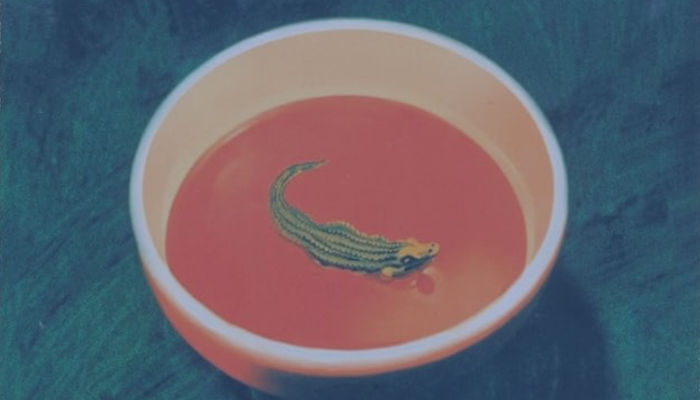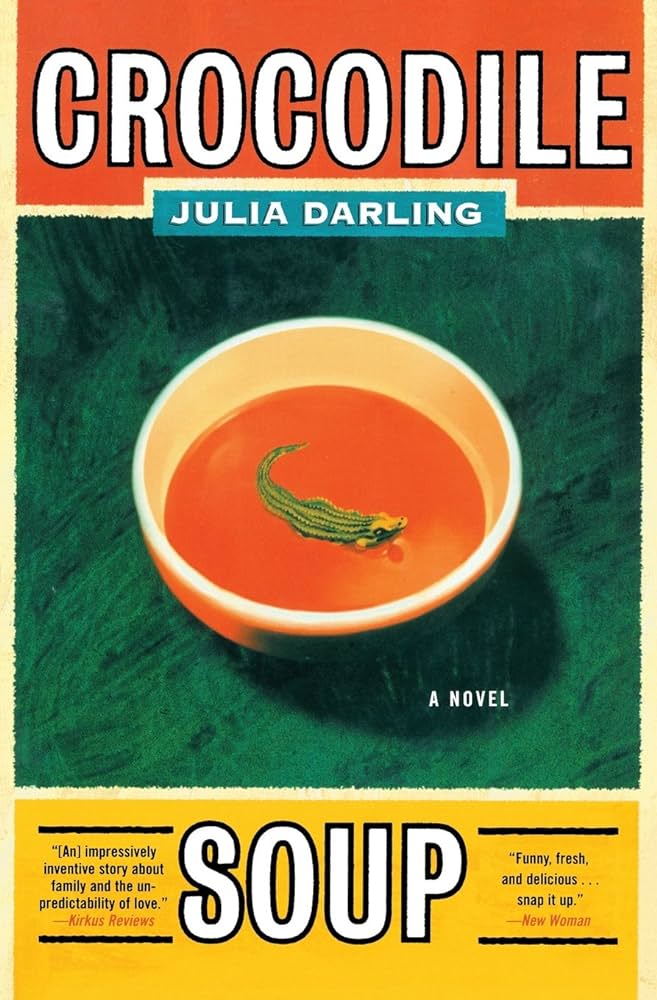
Q Review | Crocodile Soup | Julia Darling
The Q Review features short reviews of books, movies and music.


When buying used books at a thrift store there’s very little chance of finding the exact titles on my ‘to read’ list; but for as little as $1.99 I can pick up five random volumes for around ten dollars, and even if only one of them turns out to be a winner, it’s worth the trip.
Crocodile Soup by Julia Darling leapt out at me from the shelf surrounded by other tattered, abandoned paperbacks not quite good enough to resell on Amazon. I’d never heard of Darling, but the cover has a quirky, retro style and an artists’ rendering of a bowl of red-orange tomato soup with a small green crocodile swimming in the center. I flipped through its pages and noticed several short chapters, some less than a page long. I figured, if nothing else I’d be able to quickly determine whether or not to keep reading. (I have very little compunction over abandoning novels that don’t turn me on.)
In fact, this book turned out to be such a delight, it has inspired me to start a new category of blog posts called “Q Reviews” so I could document the cool shit I’ve been reading without having to depend on Goodreads (a website that I consider toxic and weird) to keep track of my reviews.
Crocodile Soup is about a thirty-something queer woman named Gert who works in a museum and is estranged from her mother. With a narrative alternating between the ‘present’ and the past, we learn about Gert’s life, her adventures growing up, and her internal struggle to resolve whatever has happened between her and her mom. We also see her struggle with mental health, relationships and her career. In short, Gert is a weird but lovable hot mess.
Darling was also a poet, so despite the contemporary subject-matter and quirkiness of the characters, the prose in this novel has a lovely, musical quality about it:
“In the evening the two women laughed so loudly that the china dinner sets rattled in the cupboards. Mabel was unmooring Jean. She was quite oblivious to the fact that she was a mother.
Frank looked at the two women as if they were shooting stars.
Sometimes Jean stopped laughing and her eyes rested on Frank as if she had just found a shell on a beach.
She looked at me as if I was a letter she had forgotten to post.”
The entire story has an unabashed absurdity that tips over into the surreal, tinged with melancholy and expressed with precise language that will have you going back and re-reading sections just because they are so fresh and well-composed.
After finishing, I went to look up Julia Darling with the intention of following her on social media. I found out she was from the UK and grew up in the house where Jane Austen lived at the time of her death. Darling herself died in the 90s from breast cancer. She’d written both poetry and fiction and won some prestigious awards and was well-regarded by her peers. Initially I was disappointed that she was no longer living so I could thank her for her book, but I quickly began to marvel at how alive this writing made me feel – and how incredible it is that someone can still impact the lives of others even after they’re gone from this world.
This, I decided, is why we write.

